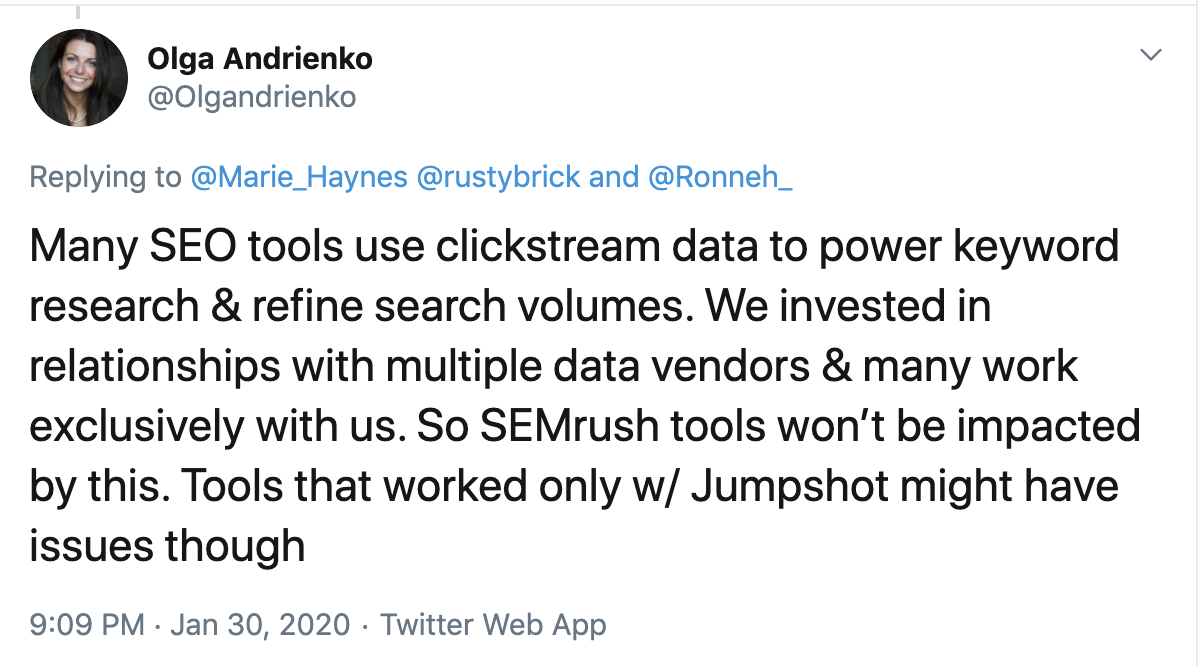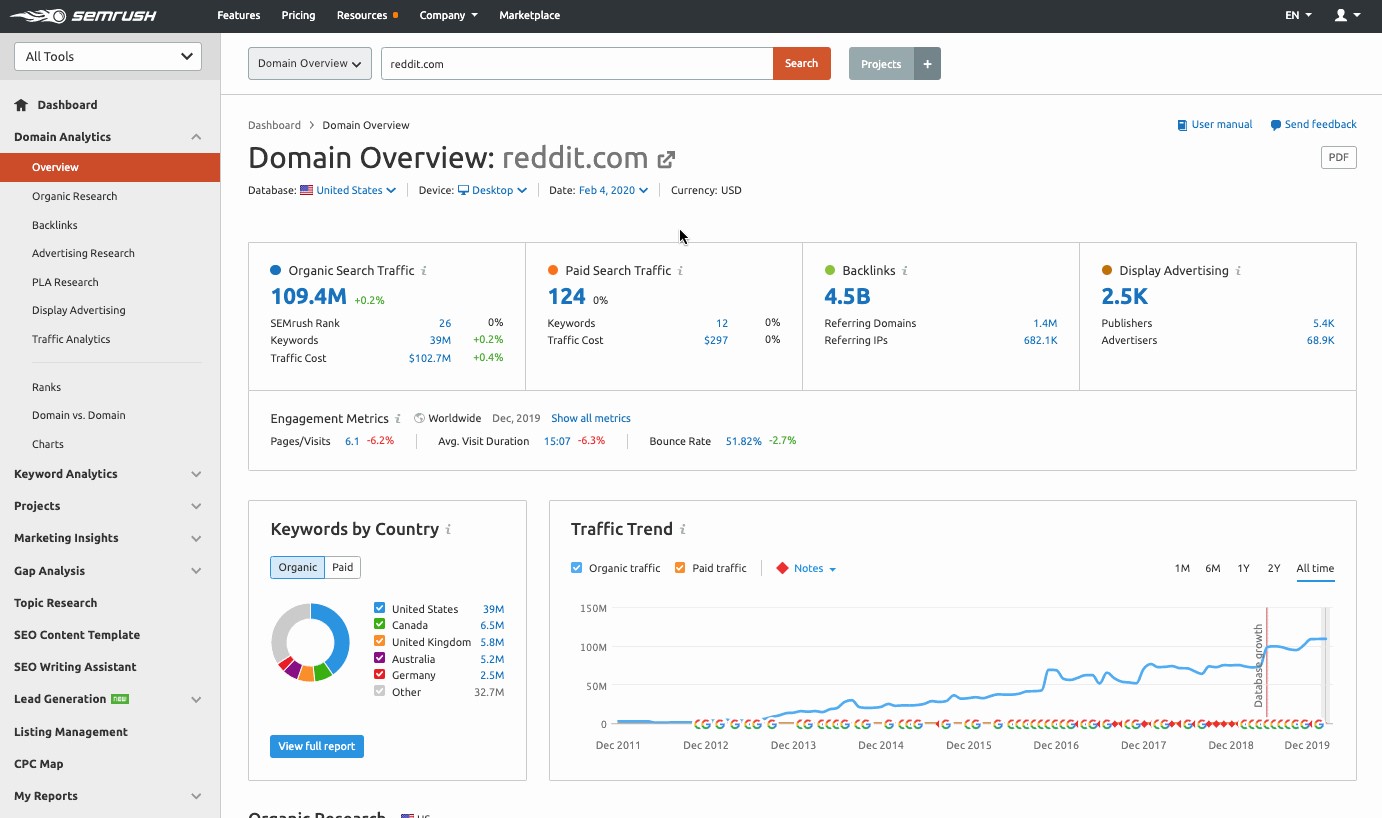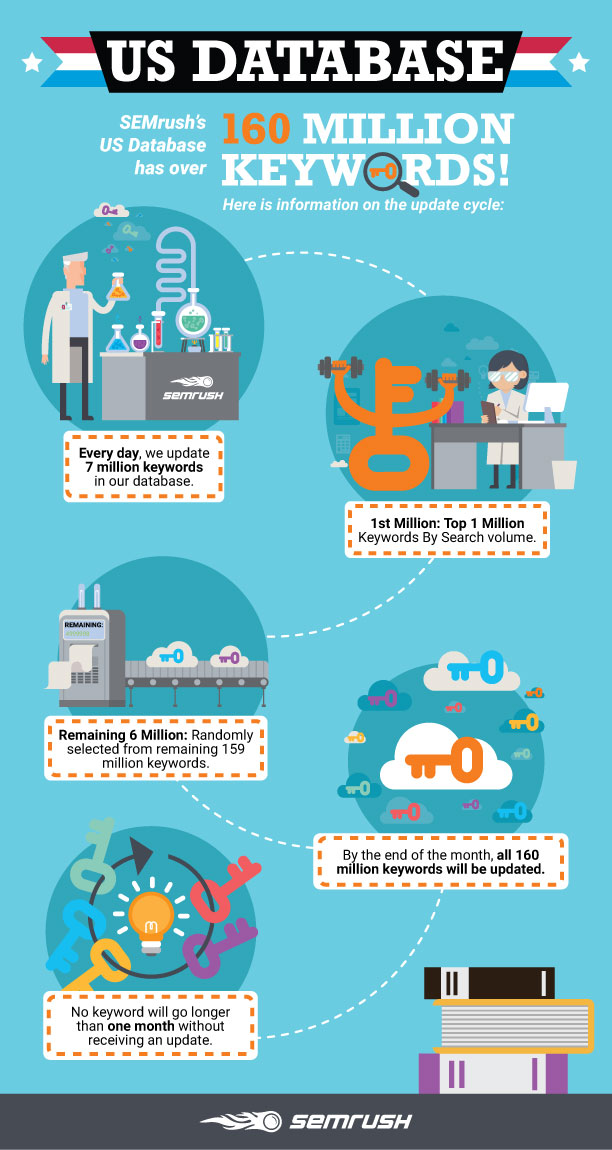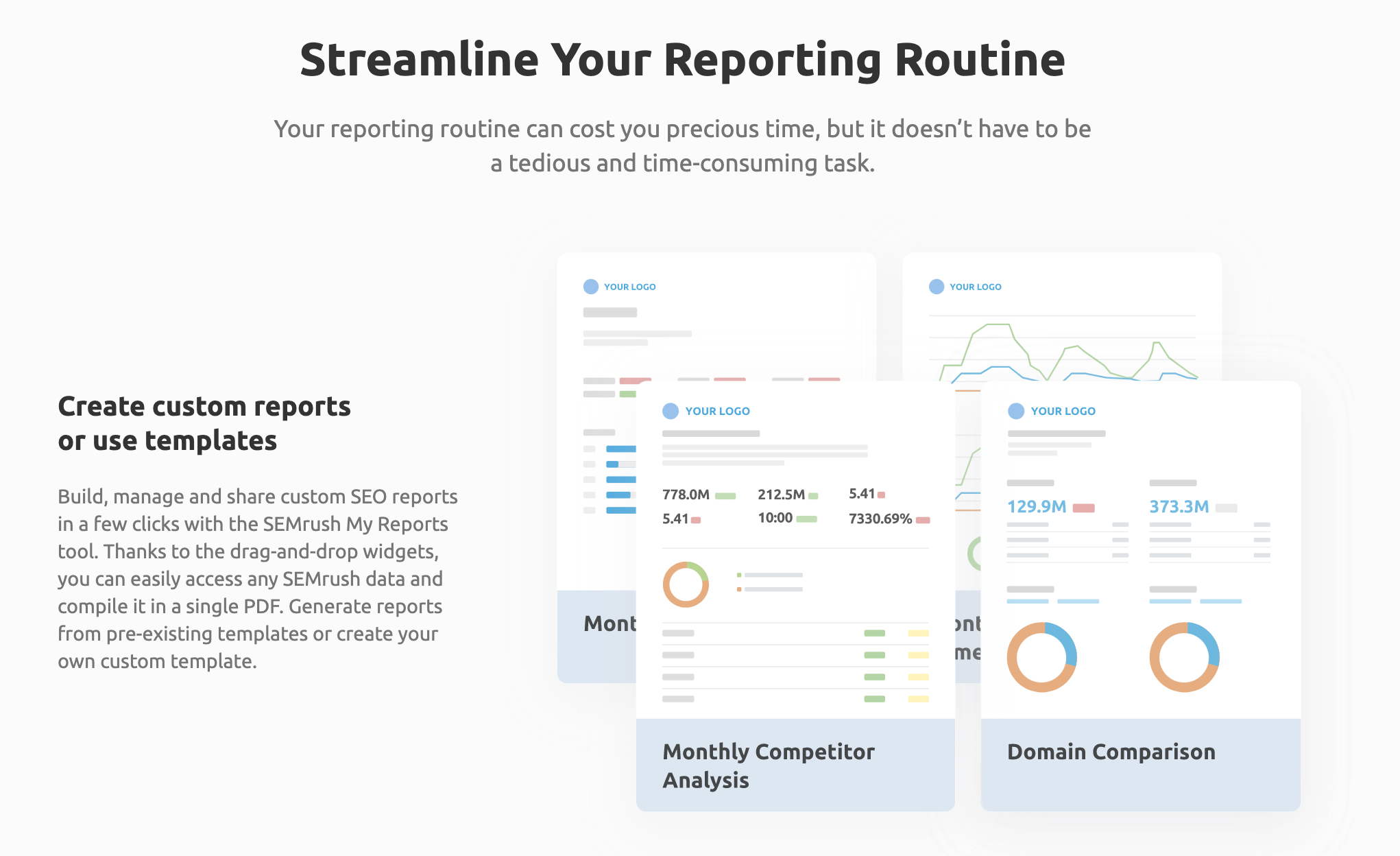Accuracy in Search Volume Data SEMrush vs Ahrefs | SmallseoTools.com

Who Has the Most Accurate Search Volume Data: SEMrush vs Ahrefs

There's no shortage of keyword research and marketing tools online today. Some tools offer simple keyword research features, others offer broader analysis including competitors backlinks checker, domain authority, traffic estimates, or competitive intelligence. Two of the titans in the field are Ahrefs and SEMrush. Of those, in our opinion, SEMRush takes the crown, and here's why:
Accuracy and Features
SEMrush maintains regional databases for keyword volume information. It has monthly information going back to 2012 for search volume. Those databases are updated every month, allowing users to get accurate and reasonably current information about searches that are of interest to people today.
SEMrush pulls anonymized search information from several sources. The diversity of their data stream is important because it means they did not rely on one specific provider to produce accurate results. This is important because in recent years there has been a shift in consumer attitudes, and certain feed providers have received negative attention in the press.
For example, In January 2020, Avast announced plans to shut down Jumpshot. The company explained that users "questioned the alignment of data provision to Jumpshot with [Avast's] mission and principles". The loss of that feed caused issues for many keyword research providers. SEMrush head of global marketing Olga Andrienko explained the company's multiple vendor relationship strategy on Twitter, noting:

It's reassuring that SEMrush works with many feed providers because it's unlikely that Jumpshot will be the only casualty of the shift in privacy attitudes. The GDPR and CCPA are both extensive and far-reaching regulations that will place a significant burden on feed providers to regularly review and update their opt-in strategies.
How Does SEMrush Collect Data?
SEMrush uses a variety of methods to collect and process data. It has sophisticated machine learning algorithms that parse the petabytes of data from search engines. This means it is able to provide an accurate and detailed analysis. To calculate search volume, it uses the following process:
-
Data from third-party providers is overlaid with historical clickstream data from multiple sources, to increase the accuracy of predictions
-
The data is sent to a computing cluster, where it is turned into a computational model
-
The model is used to generate volume estimates for billions of keywords
It's important to note that any keyword data calculations are estimates. This is true for all keyword volume providers. The only organizations that have access to accurate and up-to-the-minute keyword data are the search engines themselves. Anyone who claims otherwise is exaggerating the capabilities of their service.
When you consider that even Google started restricting its keyword planner data in 2016, it's clear that getting accurate search volume data is a difficult task. A large dataset cross-referenced against past trends is the most accurate that someone outside of the search engines can get.
How does Ahrefs Collect Data?
Until recently, Ahrefs relied on Jumpshot for keyword data. This data feed was comprehensive and allowed clients to gather extensive information about interest in keywords. Many companies relied on the Jumpshot database, including, at one point, search marketing giant Moz. The loss of the Jumpshot feed was a serious blow to Ahrefs.
Of course, the company moved quickly to find alternatives. In the short term, they changed their reports to use historical data. Later, they started working with other data providers. So far, neither of these options have worked well.
The Problem with Historical Data
Using historical data may give webmasters an idea of what is popular seasonally, but only on a relatively high level. Not every keyword is seasonal:
-
The keyword gardening may be popular in the spring year after year
-
The keyword Pyeongchang Olympics was popular in 2017 and 2018 but is no longer timely
-
Historic data won't be able to estimate interest in viral or news-related topics
Monthly updates, which is what SEMrush offers, allow for better response to trends. There may still be some "flash in the pan" trends that get missed, but fashions, popular artists, and certain news stories will be picked up more accurately when the search volume provider is using datasets that are updated on a monthly basis.

Ahrefs Needs to Update its Algorithms
After a long period of working with one specific data provider, Ahrefs now needs to alter its algorithms to work with other providers. Their existing algorithm was tailored to the Jumpshot feed, and users have reported some unusual results in more recent searches, with nonsense keywords appearing regularly.
To their credit, the team is working on improving their results under the new database, but it may take some time for them to smooth out the quirks in the algorithm.
A Longstanding Provider
SEMrush's commitment to having a robust and varied dataset for keyword research has helped it survive while other companies struggled. Following the closure of Jumpshot, some keyword research providers ceased trading, including Hitwise.
Hitwise was one of the earliest web analytics companies, competing against brands such as comScore and Nielsen. It's unclear whether the "events outside of our control" remark on their website references Jumpshot's shutdown specifically, but many analysts believe that it does. Hitwise, like SEMrush, collected data from multiple sources, but they may have feared that their other data providers were about to run into the same privacy issues that had impacted Jumpshot.
SEMrush has, so far, managed to avoid issues thanks to its methodology. Since its goal is to be the swiss army knife of SEO tools it is well-positioned to remain competitive even as the way that we collect data online, and the data that we collect, changes.
Commitment to Growth and Evolution
SEMrush started life as a general analytics tool offering features such as backlink counts. Over time, it became known for its keyword research features and some of the other tools it offers were overtaken by dedicated providers.
SEMrush was not happy to let that happen and has invested in improving its other offerings. It has increased the size of its domains database and worked to improve its analytics and reporting too.
The results of this investment are clear, and out of the 'big four' tools for internet marketers, SEMrush consistently wins awards and comes out on top in reviews, especially for serious marketers who require advanced metrics.

That's why we recommend SEMrush for data gathering, market research, competitor research, and analysis. The tool offers a free trial and a generous allowance for creating reports, so it's well worth investing in for serious marketers.
Reports to Guide Your Marketing Efforts
SEMrush appeals to many marketers because it offers a sophisticated suite of tools and a detailed reporting dashboard. Search volume data aside, many of the other reports available within SEMrush are also available elsewhere, with similar levels of accuracy. Where SEMrush shines, however, is in how it brings it all together.

Busy marketers do not have the time to use dozens of tools to pull together information and generate their own reports. It makes more sense for marketers to have everything in a single dashboard and to generate information about a subject, keyword, or domain with just a few clicks.
SEMrush offers subscribers the ability to do this and to generate a generous number of reports per day even on the lower tiers of the subscription. This means users don't have to trawl through reports from several sites to keep an eye on their backlinks, find new trending topics, and get actionable information quickly and easily.
The suite of tools includes:
-
Search volume estimates
-
Lead generation
-
SEO Content templates
-
PLA research
-
Display advertising
-
Domain comparison
Successful search marketers use multiple tools to improve their visibility and traffic. SEMrush offers a huge suite of tools and all of them are competitive with the other offerings on the market. Having everything in one place is invaluable for those who want to maximize their productivity, and in particular for those who manage multiple sites.
The Importance of Accurate Search Volume Data
Marketers rely on accurate search volume data to guide their PPC bids and content marketing efforts. If such data becomes unavailable, it will change the relationship that marketers have with search engines.
Even things such as the choice of domain name rely on keyword data. The importance of that data means tools such as SEMrush and Ahrefs will never go away. The remaining contenders in this niche will be working hard to produce the best estimates possible. For now, however, we truly believe SEMrush holds the crown.











